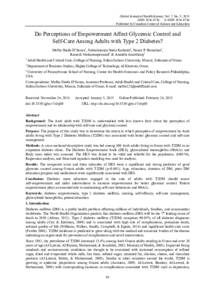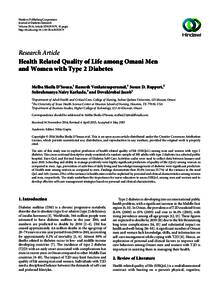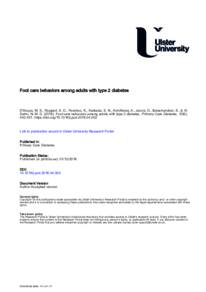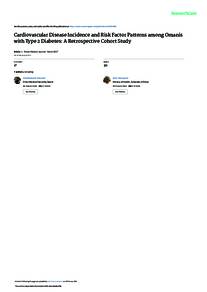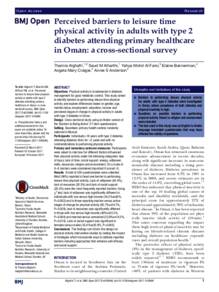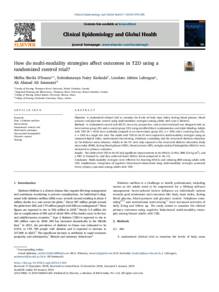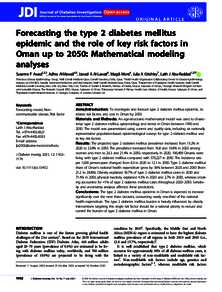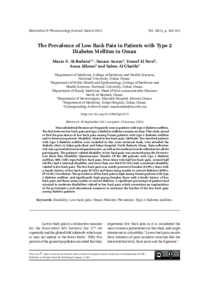Document
Do perceptions of empowerment affect glycemic control and self-care among adults with type 2 diabetes?.
Identifier
DOI: 10.5539/gjhs.v7n5p80
Contributors
Karkada, Subrahmanya Nairy., Author
Hanrahan, Nancy P., Author
Venkatesaperumal, Ramesh., Author
Amirtharaj, Anandhi., Author
Publisher
Canadian Center of Science and Education.
Gregorian
2015-02
Language
English
English abstract
RESULTS: The composite score and three subscales of DES were a significant and strong predictor of good glycemic control among Omani adults with T2DM (p<0.001). Age, education, duration of DM, prior DM education program and medications were significantly associated with DES.
CONCLUSION: Diabetes nurse educators engaged in the care of adults with T2DM should assess self-empowerment and tailor interventions to increase empowerment for better glycemic control. Patient empowerment plays an essential role in maintaining self-care behaviours and HbA1c.
BACKGROUND: The Arab adult with T2DM is understudied with less known facts about the perception of empowerment and its relationship with self-care and glycemic control.
PURPOSE: The purpose of this study was to determine the extent to which perception of empowerment by Arab adults living with Type 2 Diabetes Mellitus (T2DM) was associated with better glycemic control and self-care management.
METHODS: A cross-sectional descriptive study was led among 300 Arab adults living in Oman with T2DM in an outpatient diabetes clinic. The Diabetes Empowerment Scale (DES), glycosylated haemaglobin (HbA1c) and Body mass index was assessed. The DES was found to be valid and reliable for the population. ANOVA, Regression analysis, and Structural equation modeling was used for analysis.
Member of
ISSN
1916-9736
Resource URL
Category
Journal articles

